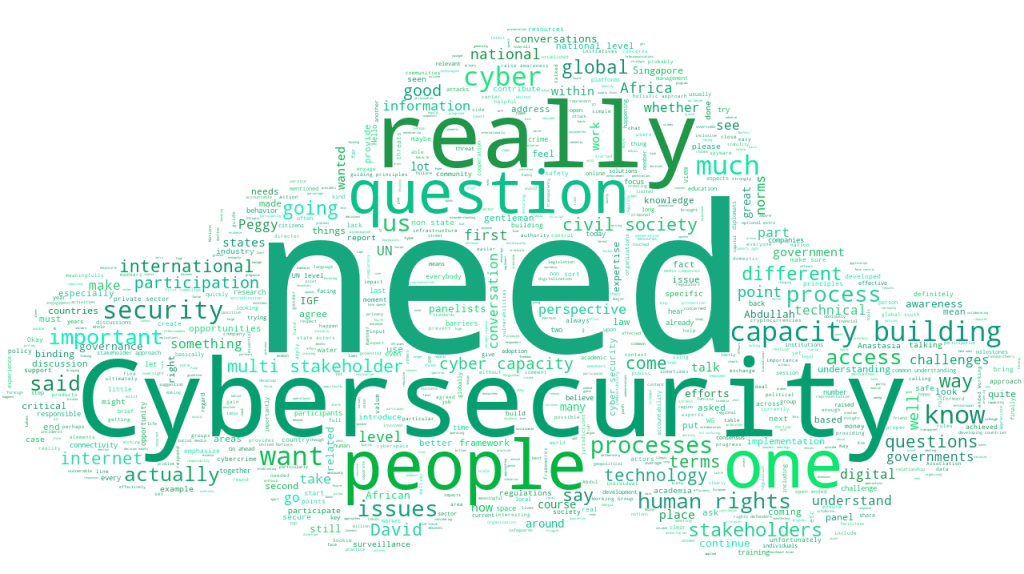Main session: Connecting all people and safeguarding human rights
1 Dec 2022 14:00h - 15:30h
Event report
Connectivity has brought many benefits to society, mainly in education, health, and work. Providing higher connectivity is vital to realising human rights, such as access to information and knowledge. Yet, 2.9 billion people around the world, mainly from low-income and developing countries, remain unconnected. One cannot ignore that increasing connectivity also exposes individuals to potential human rights violations in the digital environment.
During the COVID-19 pandemic, connectivity gained prominence as there was an increase in awareness of the importance of considering access to the internet as a human right. Challenges related to ensuring safety and equality in the virtual environment became even more evident. Digital divides, misinformation, disinformation, and hate speech affect those who need the internet the most because they do not have the space to congregate offline. The question that arises is how to make the online space safe and inclusive, while protecting human rights like freedom of expression.
Furthermore, it is not possible to achieve meaningful connectivity if we do not close the gaps in digital skills and literacy. It is necessary to invest in people as rights holders and platform users, and transfer the power that is currently in the hands of companies to states, communities, and individuals.
Big tech companies have a significant influence on the virtual world. In some countries, they are responsible for investments in infrastructure, which gives them even more leverage. Giving too much control to these companies can amplify human rights abuse on these platforms. We must encourage platforms to be more human-rights-oriented.
Digital technologies can help societies overcome some of the most pressing societal challenges (e.g. health, water, sanitation), but we must close the digital divide. This means focusing on those who are disproportionately disconnected, such as women, children, and marginalised groups.
Stopping internet shutdowns, which can negatively impact economies and people’s rights, is also important. It is necessary to build a consensus on the inadmissibility of shutdowns and take a multistakeholder approach to strengthen accountability (both for governments and companies). This includes four steps:
- States need to stop imposing shutdowns.
- States that are imposing shutdowns must be transparent and comply with international human rights law.
- Telecommunications companies must explore measures to challenge disruptions when they occur.
- Connectivity must be kept on.
Legislation for online harmful content is often too broad and tends to threaten protected speech (e.g. there is an increasing number of prosecutions of people for a single tweet, as well as attacks on journalists and human rights defenders). The issue needs to be faced in all its dimensions by tackling the problematic legislation, enhancing digital security for civil society groups, and establishing a commitment to protect those who are currently under threat.
Many are of the view that connectivity and access to the internet represent a right and should be considered a public good. However, there is still a huge gap between the protection of human rights offline and online. To address this gap, we should first consider technology, ethics, and law from the onset of the innovation process. Second, we should focus on human-rights-based digital transformation, human-rights-based database systems, and human-rights-based AI.
It was argued that by labelling connectivity as a human right, we are empowering states to regulate human rights in the online world, which can be problematic. As an alternative, UNESCO regards access to information as a public good and connectivity as a means by which people access information. Providing meaningful connectivity means reflecting on whether the internet fulfils all the aspects of the right to access information. For this, UNESCO developed the Internet Universality Framework which has already been undertaken by 44 countries around the world.
Valuing community networks and community-based solutions, and strengthening the role of parliamentarians will be essential for accelerating digital inclusion, especially at the regional level.
By Isabella Bassani
The session in keywords

Related topics
Related event


